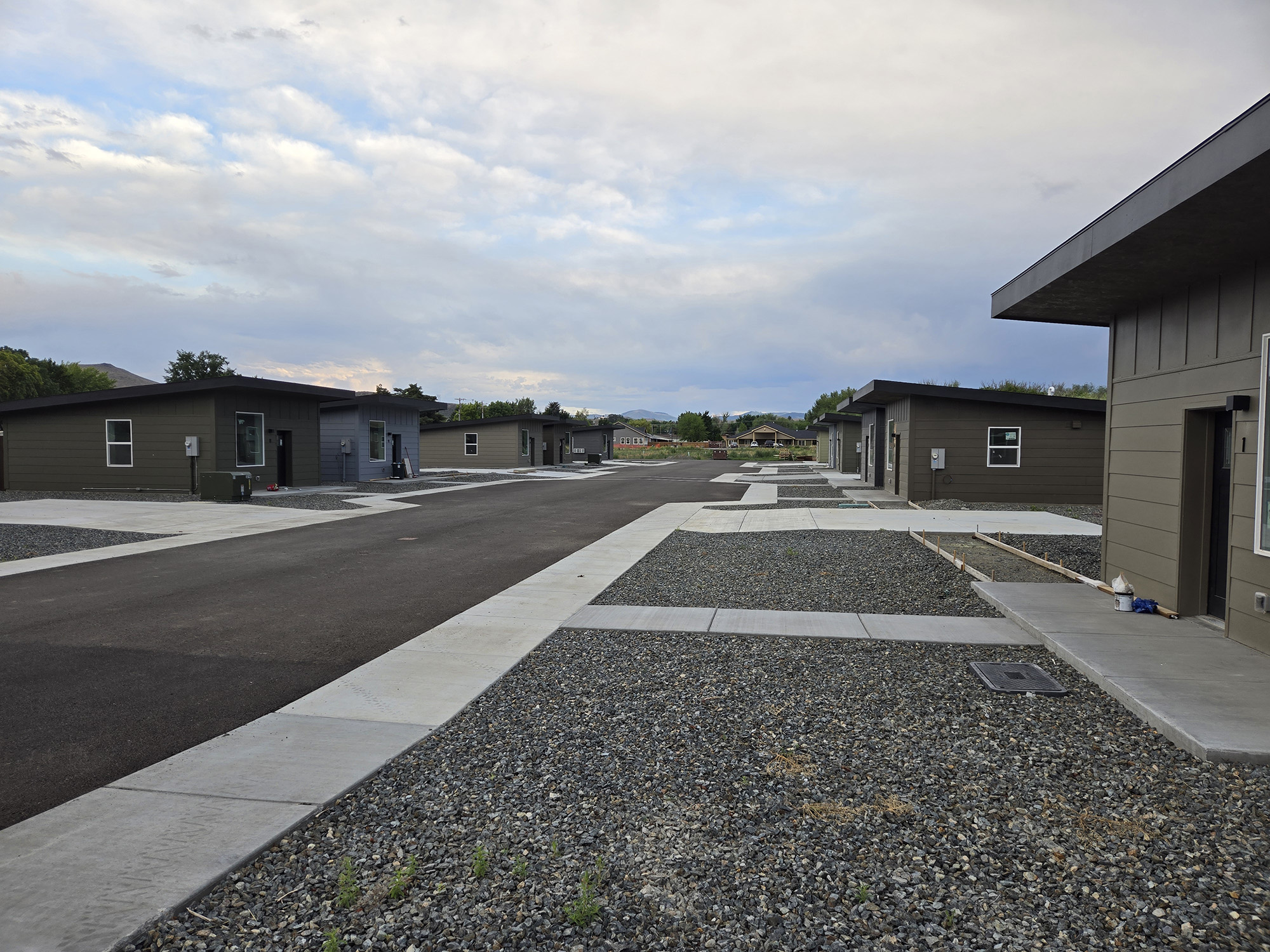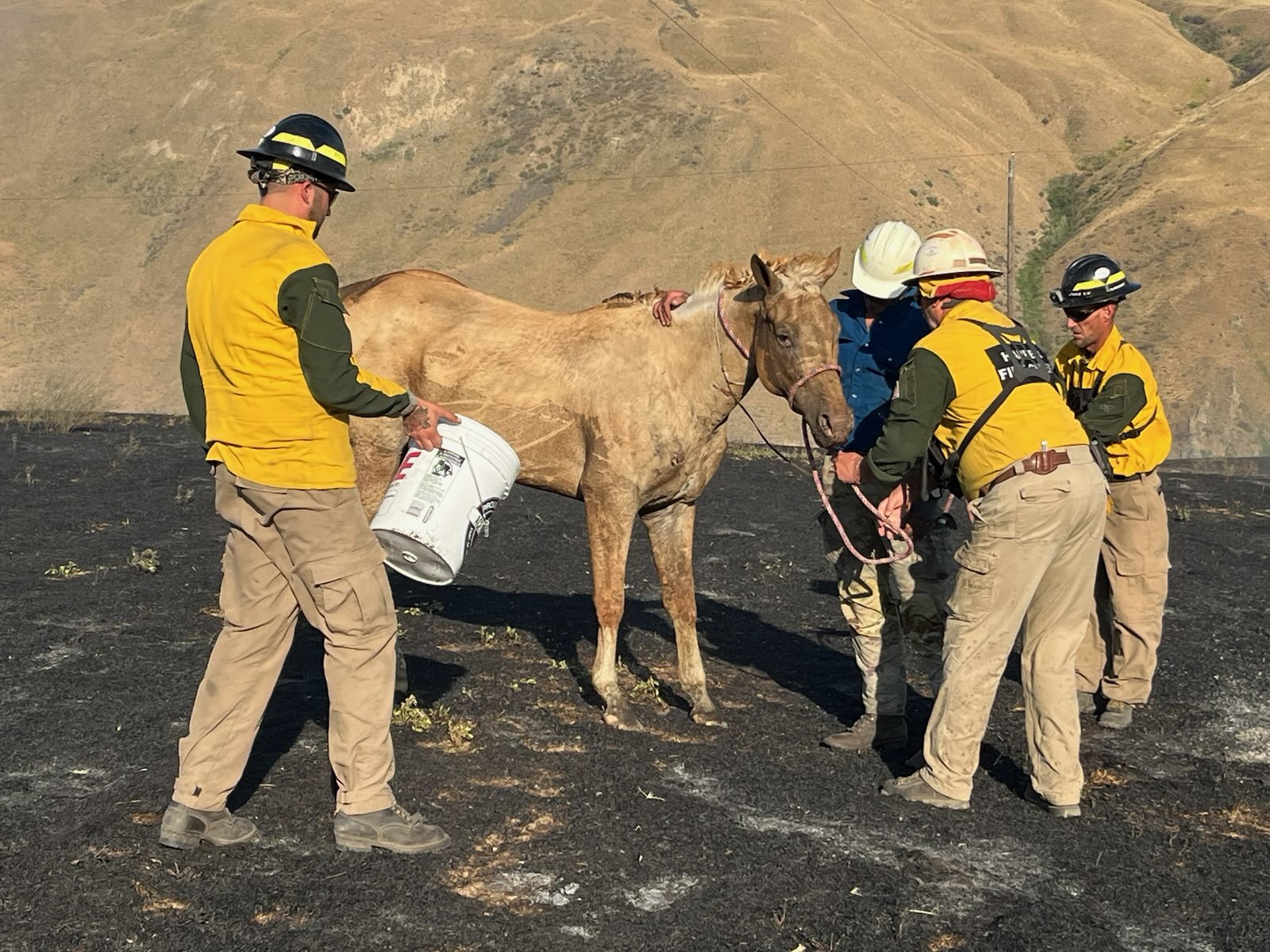COLUMN: Magical May; and the tale of a boy and a backhoe
Published 9:30 am Saturday, May 30, 2020
I was puttering about in my yard the other evening, enjoying the carefree amble of a man whose lawn is freshly mowed and flower beds recently purged of at least the most obvious weedy infiltrators.
Trending
I was reaching across the stump of our honey locust — long since felled, and little lamented as it cast but a puny patch of shade — stretching to snag a windthrown willow limb, when a zephyr filled my nose with the scent of new lilac.
If May were casting about for an official aroma I likely would nominate that one.
It is not quite the sweetest smell of spring — bitter cherry, named for its flavor rather than its odor, earns my vote in that category.
Trending
But lilac has a heft to it — an almost physical presence as it arrives at my nostrils, as though the fine sensitive hairs inside were quivering like the just-plucked strings of a guitar.
Moisture seems to enhance the aromatic effect.
This particular evening was dry, but the clouds draped the foothills and had that swollen appearance which suggests rain is imminent.
The same breeze that wafted the lilac over my cheeks also carried the fresh damp tang of all that liquid suspended overhead, a veritable ocean in the sky.
Often as not in our climate, which is a much closer kin to the desert than to the rainforest, this preview is in effect the whole show, and the clouds slide to the east, stubbornly holding their moisture until they slam into the unyielding granitic masses of the Wallowas and the Seven Devils, those ramparts of the Rockies.
But it is in May when the pregnant clouds are most apt to deliver on their promise.
Indeed it was later that week that rain sluiced down for the better part of a day, swelling streams and puddling muddy, pollen-speckled water in every depression.
I enjoy such days, in the main.
I relish them for their very rarity, among other reasons. I feel the same about other abnormal phenomena such as the night when the temperature, rather than halting at a more customary zero, continues to plunge to 15 below, or 25, or the November afternoon that feels more like August and no matter the yellowed leaves and the blazing orange patches where the tamaracks grow thickly.
But I also appreciate day-long May rains because they nourish the greenery that helps sustain us through the long and inevitably torrid summer. In the soggy May day lies the promise of the cooling canopy of July ash leaves, the plump tomato and the smiling sunflower.
May, moreover, is the balm which eases us, gently and with no painful chafing, from one season to the next.
I would despair were true summer to arrive hereabouts as soon as May, just as I would if winter, with its incessant frigidity, barged in along about the end of September to commence its long residency.
In most years May boasts the year’s first 80-degree afternoon — a chance to remember what it is to wear shorts outdoors without wincing.
But there is nothing malignant about early heat, even though it always feels rather like an ambush, coming as it does after so much monotonous chill.
A hot afternoon in May lacks the treachery of the same temperature in July, when it’s likely to be just another sizzling day in a long series. In high summer the only potential relief during a heat wave is the thundershower — exciting, certainly, but as unreliable as that one friend who invariably shows up an hour late and without the promised potato chips.
But in May, no matter how stifling any individual day, I am comforted by the knowledge that the North Pacific will almost certainly conjure at least a couple more cold fronts soon — those refreshing intervals that hold off summer for a bit longer while lilac still perfumes the cool hours on the edge of dusk.
0 0 0
On the night of the May 19 election I received an interesting email.
A man, inquiring on behalf of his 5-year-old son, asked if I had a photograph of the 1995 Case backhoe that Baker City plans to sell.
This particular piece of equipment garnered considerably more attention than most earthmoving implements, due to a curious clause in the city’s 1952 charter. That clause requires the city to get voters’ approval before selling property, including equipment and vehicles, worth more than $10,000.
City officials figure the backhoe could fetch around $16,000 through an online government auction, so on the ballot the backhoe went.
Voters, perhaps assuming they weren’t going to get to use the machine to remake their own spreads, went for the city’s plan at a rate of better than 92%.
This unusual bit of electoral intrigue prompted stories in The Oregonian, among other news outlets that generally show little interest in Baker City happenings.
I told the boy’s father that I didn’t have a photo — my file on publicly owned backhoes is woefully thin — but that I figured I could get one.
I immediately thought of Tom Fisk.
Tom is the operations supervisor for the city’s public works department. When I have any question involving a city street or sewer pipe or anything else that can be paved or buried or busted, he’s almost always the first person I call.
The reason for this is simple — he almost always has the answer.
And as I expected, Tom was able to supply me with a photograph of the increasingly famous backhoe, which I duly passed on to the dad.
But Tom wasn’t satisfied.
The photo he sent was an older one, he said, and it showed the backhoe not with its bucket, but with a different tool — one the city isn’t selling.
So on the rainiest day in almost 5 years, Tom went out to get a couple more photos of the backhoe, this time wearing its standard attire, so to speak. He texted the pictures to me, and I again forwarded them on to the father.
He thanked me profusely and wrote in an email that his boy was very excited by the photos.
I emphasized that I was merely the messenger, and that Tom deserved the credit.
I suspect he would deflect that credit, would suggest that he had done nothing special.
But I’d like to believe that helping to make a little boy smile is precisely the sort of thing for which the word special is meant.
Jayson Jacoby is editor of the Baker City Herald.









